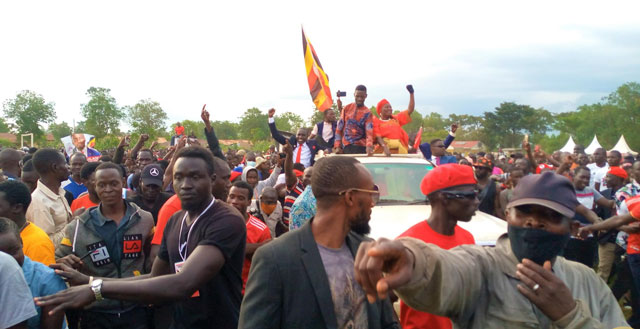
Lessons for NUP from the failure and disintegration of FDC
THE LAST WORD | ANDREW M. MWENDA | With former presidential candidate, Robert Kyagulanyi aka Bobi Wine opting out of court and going to the “court of public opinion” (i.e. street protest), the stage is now set for increasing repression. Every protest will be seen by the state as insurrection and therefore dealt with as treason. With security, not politics, running the show, the opposition will once again be vulnerable to infiltration and subterfuge. Under such circumstance, the opposition can only survive through ideological purity or the trust of identity.
Yet Uganda is a multi ideological, multi religious and multi ethnic polity. The country lacks a solid majority based on identity (the largest tribe, the Baganda, constitute only 16.2% of the population), while the largest religion, the Roman Catholic Church, constitute only 34% of our population. To make matters worse, it is not easy to leverage this religious identity because Roman Catholics in Uganda also have tribal loyalties that may sway them. And when it comes to ideology, our country is more diverse than it is ethnically.
Therefore to build an electoral, leave alone a governing, majority in Uganda, any leader or political party needs to build a coalition comprising of different ethnicities, religions and political beliefs. In other words, one has spread their net of appeal as widely as possible i.e. they would need a large umbrella. I had initially felt that this was the whole ideal behind the National Unity Platform (NUP) adopting it as a symbol of the party.
President Yoweri Museveni has ruled Uganda for very long because he understands this reality. In fact I think that Museveni learnt this lesson from Milton Obote and Uganda People’s Congress (UPC). They lost power twice, not because of failure in political calculations, but because of shortcomings in their management of the military. In the early 1960s, Obote built a coalition of protestants, Buganda, other large and small ethnic groups across the country and the different ideological strands to win elections.
When his alliance with Buganda fell, Obote adopted the “Zulu horn” strategy, exploiting the envy and hostility other tribes had against Mengo to encircle Buganda. Mengo was unable to mount any meaningful resistance to his rule. Obote fell not because Buganda opposed him but because he failed to manage the army and Idi Amin overthrew him. During the 1980 to 1985 elections, Obote again encircled Buganda and won. But this time, he faced his own student of politics. It is Museveni, not Mengo, who effectively exploited Buganda hostility to Obote to defeat him – not in elections but in a military campaign where the former president was weak.
But to understand why Museveni defeated Obote militarily, one has to study more his politics than his military strategy. Museveni understood that any protected military campaign, however well planned, could only be successful if it is backed by the right political strategy. In brief, Museveni needed to build a broad political coalition to act as the bedrock of his military strategy. In all his writings during the struggle, Museveni emphasised the fundamental role of broad political support to secure military victory.
 The Independent Uganda: You get the Truth we Pay the Price
The Independent Uganda: You get the Truth we Pay the Price



